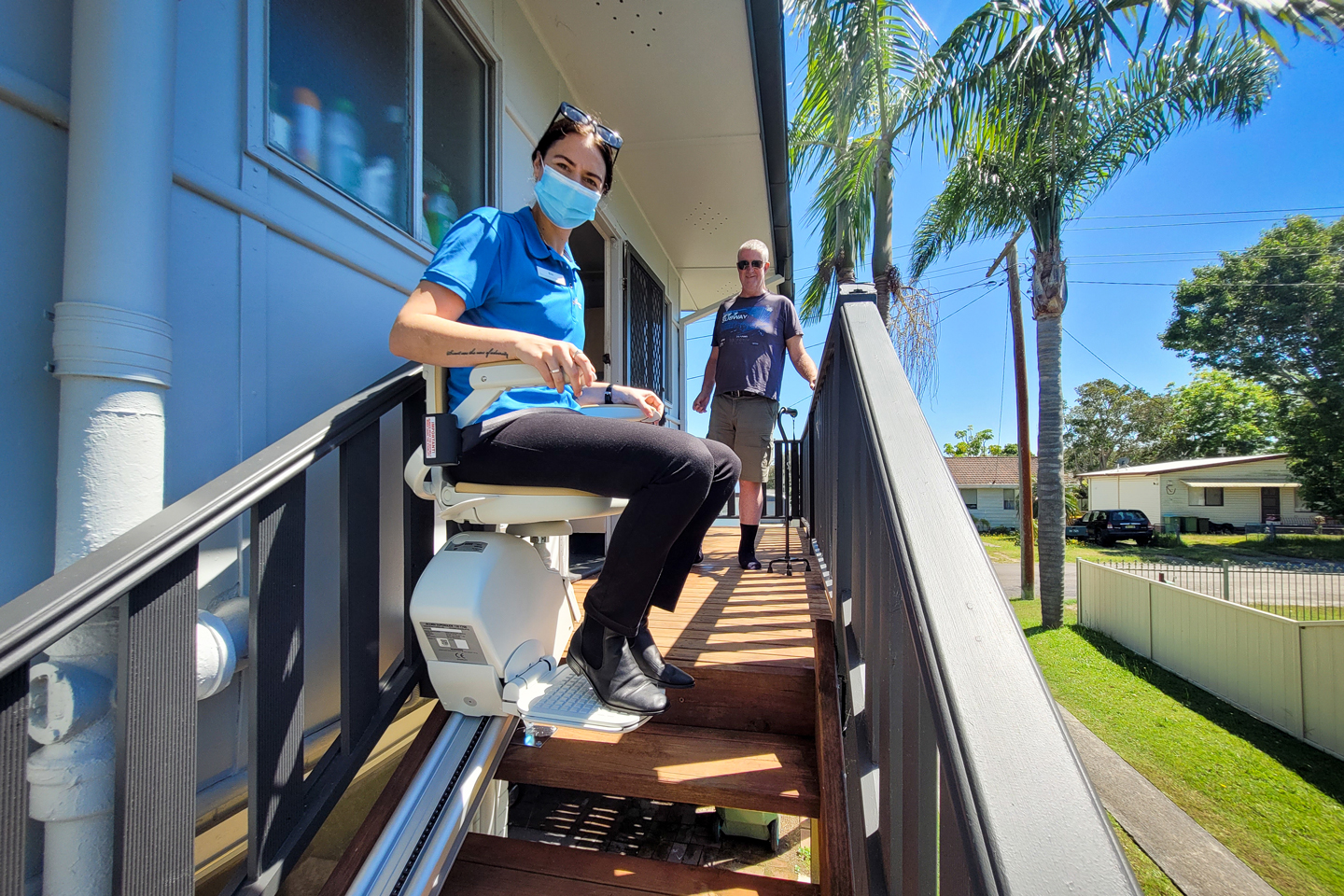Short Term Restorative Care
At Community Therapy, we acknowledge the importance of our community to have the ability to live independently, and safely at home.
Short Term Restorative Care (STRC) is a funding scheme by the Australian Government. The scheme is in place to help older adults improve their functional capacity over an 8 week program with the ideal outcome being to support people to increase their ability to remain living independently for as long as possible.
Community Therapy’s wonderful team of Physiotherapists, Occupational Therapists, Speech Pathololoy and Dietitians work with approved Short Term Restorative Care providers to deliver therapy and support to clients within the STRC program.
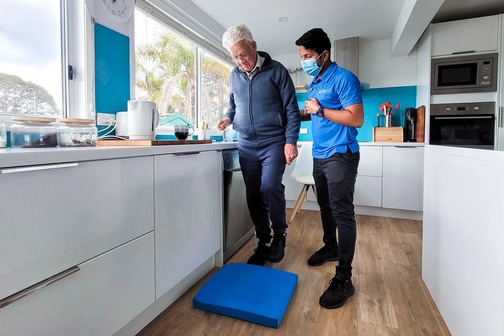
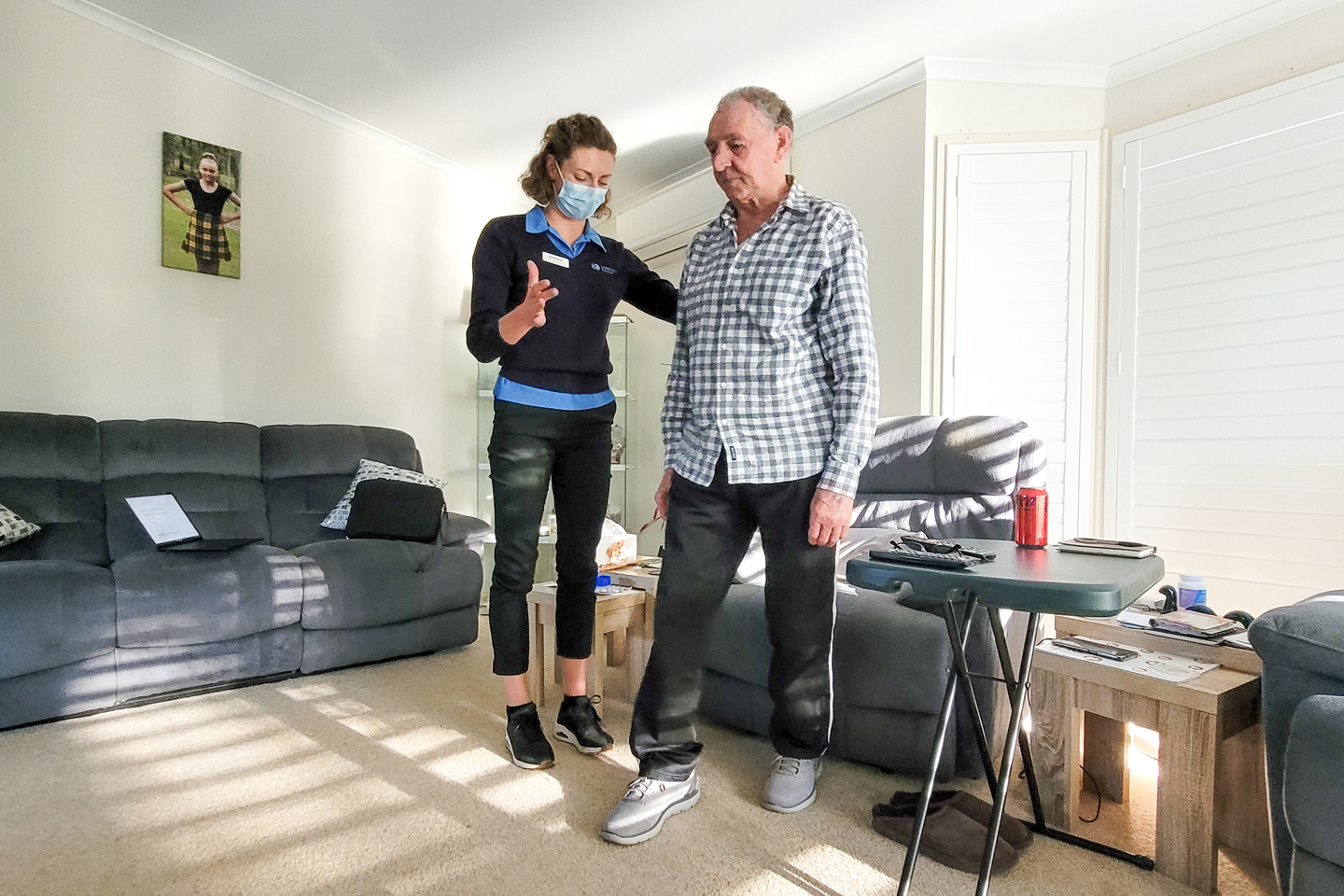
Starting a Short Term Restorative Care Package
Community Therapy partners with STRC providers to support clients with Physiotherapy, Occupational Therapy, Speech Pathology and Dietetics.
Approval for a Short Term Restorative Care package is provided by the Aged Care Assessment Team (ACAT). Suitability is based on the following factors:
- Age (participants are over the age of 65, or over 5o for indigenous Australians and those of Torres Strait Islander descent)
- The capacity to improve function, as assessed by ACAT
The scheme falls under the My Aged Care support for older Australians.
For some people, a Short Term Restorative Care package will be the first step before receiving additional support, which would be through programs such as the Commonwealth Home Support Program or the Home Care Package scheme.
What can STRC clients expect from Community Therapy?
Usually, STRC clients have the support of several of our allied health services – Physiotherapists, Occupational Therapists, Speech Pathologists and Dietitians.
Many participants will receive weekly Physiotherapy, although in some instances clients may require twice-weekly treatments.
Our Physiotherapists can assist with the provision of equipment if necessary. This is typically mobility and rehabilitation related equipment, examples include
- walking frames
- walking sticks
- exercise equipment
- wheelchairs
- electric recliner chairs
An Occupational Therapist will often be engaged to assess for home modifications as well as assistive equipment. This typically involves an initial assessment and follow up consultation with builders or equipment suppliers. It may also include a trial of equipment to determine suitable supports.
Examples of home modifications in STRC situations may include:
- ramps for safe access to the home
- handrails
- bathroom modifications
Our Speech Pathologists will often support people living with swallowing or communication difficulties and may see people several times over their programme.
Our Dietitians are almost always involved to support the increased nutritional demands of increased exercise during a STRC programme with Physiotherapy support and also to review risks of frailty or malnutrition associated with older age.
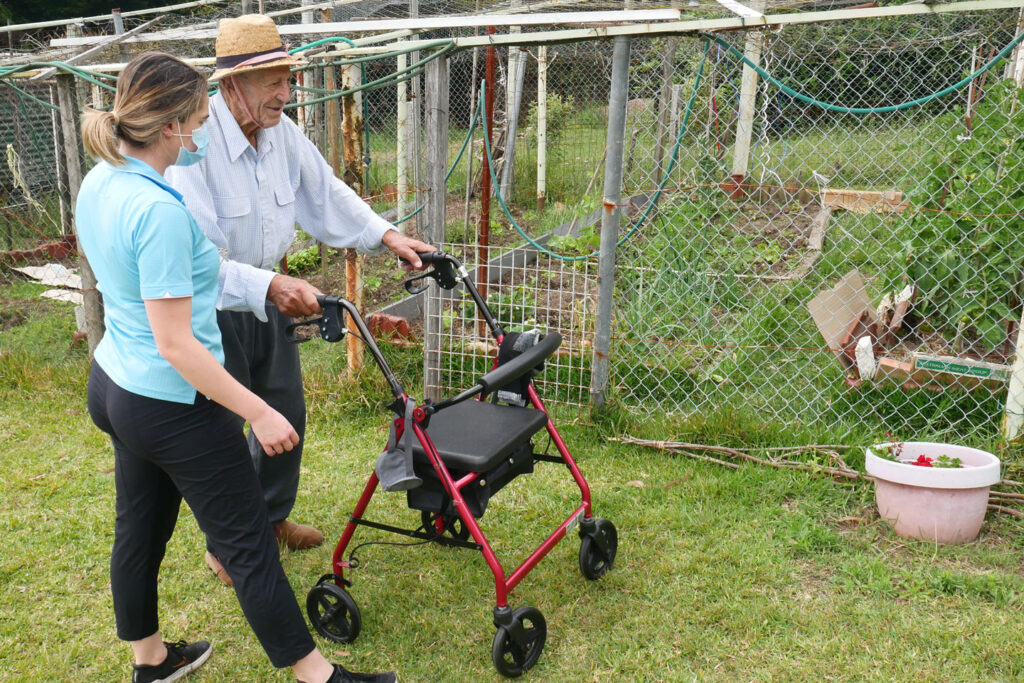
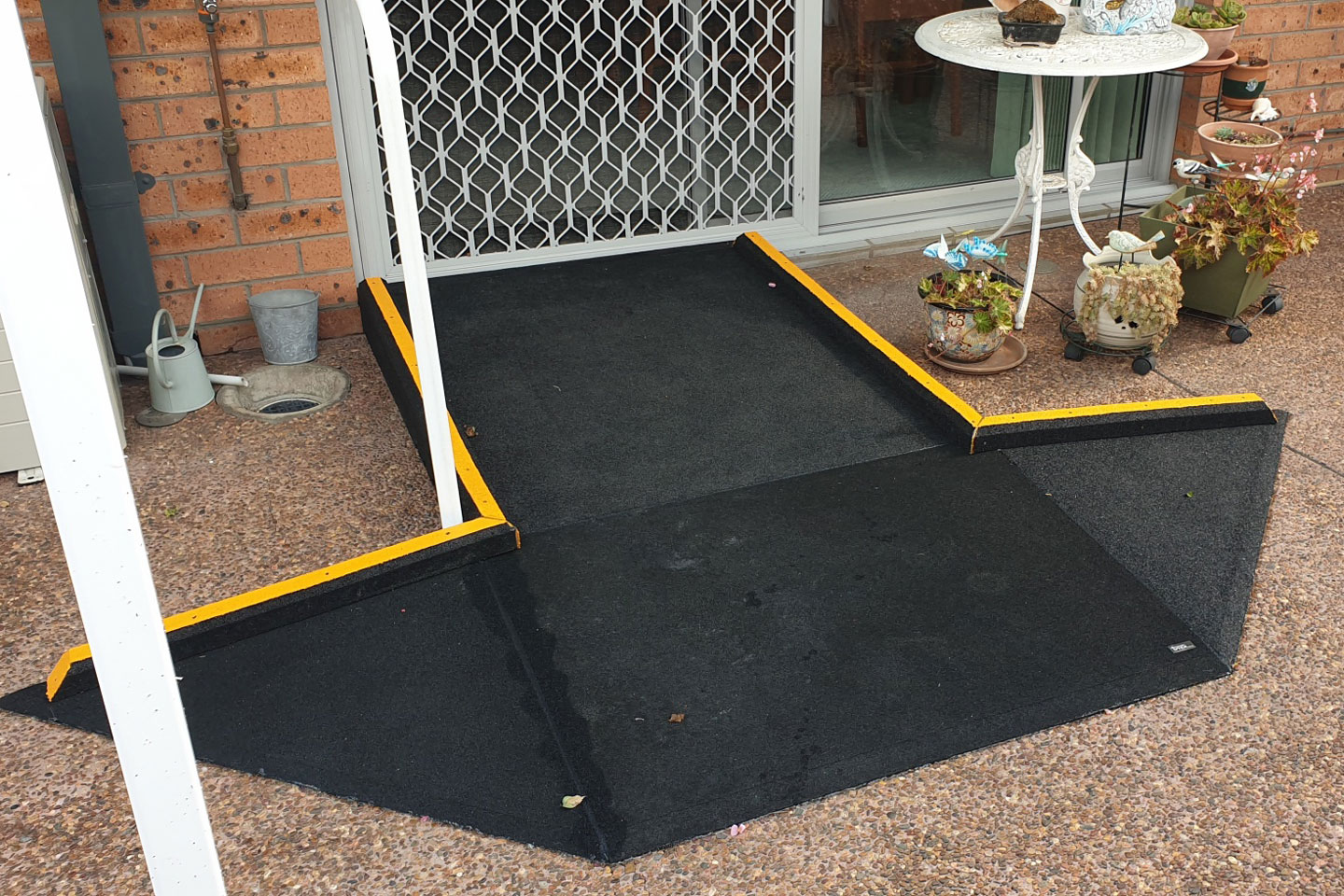
Working with Community Therapy for STRC
Clients with an existing Short Term Restorative Care Program are able to ask their coordinator to connect them with Community Therapy to organise the appropriate clinical treatment.
To determine eligibility for Short Term Restorative Care, a patient can contact My Aged Care to request an assessment.
The Aged Care Assessment Team (ACAT) will carry out assessments for those who are facing challenges staying at home, or for those who have had a clinical change such as an infection, or following a hospital stay.
What happens after a STRC Program?
At the conclusion of an 8-week program, Community Therapy’s Physiotherapists, Occupational Therapists, Speech Pathologists and Dietitians will be involved in establishing a client’s exit strategy. This will happen in collaboration with their Coordinator.
Often, our clinicians will continue to provide support to the client after the Short Term Restorative Care program finishes. This is because in many cases clients will transition to a Home Care Package or receive ongoing Commonwealth Home Support Program funding.
If there are no appropriate funding options available, our services are also available to private clients, including those with private health insurance, DVA or Medicare assistance.
Community Therapy Reporting in STRC Programme
Our Physiotherapists, Occupational Therapists, Speech Pathologists and Dietitians complete comprehensive reports which are provided to the client’s Coordinator.
Reports also include details of the clinical reasoning behind any equipment or home modification recommendations.
Reports ensure comprehensive record-keeping for Community Therapy, the registered provider and the client.
Why choose Community Therapy?
Community Therapy is an ideal care provider for two reasons:
- We already partner with many Short Term Restorative Care program providers in our region and are experienced in delivering STRC programs.
- We concentrate our service delivery to two sectors: aged care and disability. This enables our Physiotherapists, Occupational Therapists, Speech Pathologists and Dietitians to provide the highest standard of expert care for all of our clients.
